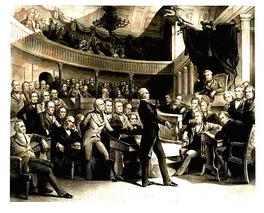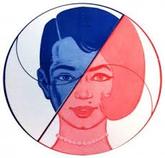Essay Prompt: Are high school relationships a waste of time or a valuable opportunity for growth?
Argument and Research: Arguments to Consider Together
Choose the Conversation You Care About
|
Your friend is thinking about getting a tattoo, but he doesn't know anything about the cost, the risks, or the possible consequences. What might he/she want to consider before making this decision? Where would you recommend he/she look for reliable information?
Somebody in your family is really passionate about comics. A friend of theirs says that the San Diego Comic-Con does nothing but cause traffic in downtown and should be relocated as soon as possible to another city. Your family member wants to persuade them that there are some great reasons to keep the Con around, but isn't sure where to start. What points should your family member make to convince the Comic-Con hater? How can this information get shared in the most persuasive way? These are the sort of real-world conversations taking place all over the world every day around the dinner table, on the Sprinter, at work, and in Congress. You have a voice, but before you share your thoughts, it's a good idea to first learn about the key concepts. My grandma used to say, "You have two ears and one mouth, so listen twice as much as you talk." How does my grandma's saying apply to us beginning our research? |
| ||
Class Discussion: What is Argument? What is Research?

Kenneth Burke writes:
Imagine that you enter a parlor. You come late. When you arrive, others have long preceded you, and they are engaged in a heated discussion, a discussion too heated for them to pause and tell you exactly what it is about. In fact, the discussion had already begun long before any of them got there, so that no one present is qualified to retrace for you all the steps that had gone before. You listen for a while, until you decide that you have caught the tenor of the argument; then you put in your oar. Someone answers; you answer him; another comes to your defense; another aligns himself against you, to either the embarrassment or gratification of your opponent, depending upon the quality of your ally's assistance. However, the discussion is interminable. The hour grows late, you must depart. And you do depart, with the discussion still vigorously in progress.
1. How does the image above relate to Burke's writing?
2. What does Burke's writing tell us about the idea of argument? What about the idea of research?
3. How do you know when you or somebody else has a strong argument? A weak one?
Imagine that you enter a parlor. You come late. When you arrive, others have long preceded you, and they are engaged in a heated discussion, a discussion too heated for them to pause and tell you exactly what it is about. In fact, the discussion had already begun long before any of them got there, so that no one present is qualified to retrace for you all the steps that had gone before. You listen for a while, until you decide that you have caught the tenor of the argument; then you put in your oar. Someone answers; you answer him; another comes to your defense; another aligns himself against you, to either the embarrassment or gratification of your opponent, depending upon the quality of your ally's assistance. However, the discussion is interminable. The hour grows late, you must depart. And you do depart, with the discussion still vigorously in progress.
1. How does the image above relate to Burke's writing?
2. What does Burke's writing tell us about the idea of argument? What about the idea of research?
3. How do you know when you or somebody else has a strong argument? A weak one?
Goals for Argument and Research
|
Learning Outcomes: Students will be able to:
|
Rubrics and Grading
|
Student Generated Rubric for the Digital Coverpage to the Final Draft
Contains "visually effective" images: 2 Contains more than 1 image: 2 Contains a hotlink to the actual final draft via Google Docs :2 The link is embedded in the title: 2 Total: 8 possible 2=excellent 1=okay 0=not done or ineffective |
|







